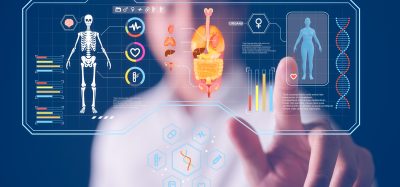Bridging science and technology: a biotech CEO’s perspective
Posted: 14 October 2024 | Dr Raminderpal Singh (Hitchhikers AI and 20/15 Visioneers) | No comments yet
In this article, Dr Raminderpal Singh speaks to Neil Wilkie of Mironid Ltd. for a biotech CEO’s perspective on the transformative potential of AI, and the importance of bridging communication gaps between scientific and technical teams to drive innovation and efficiency in the pharmaceutical industry.


We interviewed Dr Neil Wilkie, CEO of Mironid Ltd., who shared his thoughts on the challenges faced by biotech companies in drug discovery, highlighting the critical role of data and technology in overcoming inefficiencies in the pharmaceutical industry. With over three decades of experience spanning both big pharma and venture capital, Wilkie provided a seasoned perspective on the intersection of business leadership, innovation, and technology adoption.
Wilkie’s background as a biochemist and his time at Merck, a leading pharmaceutical company, shaped his early understanding of drug development and business strategy. However, it wasn’t long before he ventured into the investment world, evaluating new technologies and working with biotech start-ups. His current role at Mironid focuses on developing treatments for rare genetic kidney diseases, and his insights reveal the challenges and potential of integrating advanced technologies like artificial intelligence (AI) into the drug discovery process.
Reflecting on the past 30 years, Wilkie noted the significant shift in how data has been used within drug discovery. Traditionally, data analysis was manual and laborious, often leading to inefficiencies in screening and pattern recognition. “We’ve gone through different phases of improving the efficiency in early-stage drug discovery,” Wilkie remarked, referencing the transition from manual methods to automated systems.
Reduce preclinical failures with smarter off-target profiling
24 September 2025 | 15:00PM BST | FREE Webinar
Join this webinar to hear from Dr Emilie Desfosses as she shares insights into how in vitro and in silico methods can support more informed, human-relevant safety decisions -especially as ethical and regulatory changes continue to reshape preclinical research.
What you’ll learn:
- Approaches for prioritizing follow-up studies and refining risk mitigation strategies
- How to interpret hit profiles from binding and functional assays
- Strategies for identifying organ systems at risk based on target activity modulation
- How to use visualization tools to assess safety margins and compare compound profiles
Register Now – It’s Free!
Today, companies use genomics, proteomics, and high-throughput screening technologies to generate vast amounts of data. The challenge, however, lies in effectively analysing and integrating this data to make informed decisions. Wilkie emphasised that while the industry has adopted more digital technologies, scepticism remains—especially when integrating AI-driven approaches into processes traditionally dominated by biology, chemistry, and pharmacology.
As someone who describes himself as an “enthusiastic sceptic,” Wilkie is cautious but hopeful about the potential of AI in drug development. “I am excited about how AI can be integrated properly into drug development,” he stated, adding that AI’s ability to accelerate processes and improve efficiency could offer immense benefits for patients, healthcare, and economies.
But Wilkie acknowledged that there is widespread nervousness in the industry, particularly among those who are not familiar with the technical side of AI. The resistance often stems from a lack of understanding, compounded by the complexity of interdisciplinary communication. “People know an area very well – whether it’s biology, chemistry, or pharmacology – but venturing outside that comfort zone into tech can be daunting,” Wilkie explained.
To overcome this scepticism, Wilkie advocates for a stepwise approach, starting with small pilot projects that demonstrate tangible benefits. Quick wins can help build trust in new technologies, easing nervousness and encouraging broader adoption.
A recurring theme in Wilkie’s reflections was the importance of communication, particularly between scientific and technical teams. The convergence of disciplines, such as biology and AI, often leads to breakthroughs. However, the difficulty lies in ensuring both sides understand each other. “When people don’t fully understand or can’t communicate on a certain level, that nervousness increases,” he noted.
To bridge this gap, simplifying the language and breaking down complex concepts are essential steps. Wilkie believes that clear communication can help teams identify areas where technology can deliver quick wins, thereby fostering greater collaboration and integration across disciplines.
From a business perspective, Wilkie discussed the pressures faced by biotech companies, particularly the need to meet board-driven milestones. These milestones – such as hit identification, lead optimisation, and candidate nomination – are critical for securing investment and increasing company valuation.
“The pressure comes from improving efficiencies to deliver on these milestones as quickly as possible,” Wilkie explained. For vendors and tech partners working with biotech companies, understanding these milestones is key to aligning their services and helping accelerate the drug discovery process.
Neil Wilkie’s insights reflect the complexities of drug discovery in an era of rapid technological advancement. While there is undeniable potential for AI and digital technologies to revolutionise the field, overcoming scepticism, improving communication, and aligning business objectives are crucial to unlocking that potential. By starting with small, demonstrable successes, biotech companies can build confidence in new approaches, paving the way for a more efficient and innovative future in drug development.
About the authors
Dr Raminderpal Singh


Raminderpal is currently the Global Head of AI and GenAI Practice at 20/15 Visioneers. He also founded and leads the HitchhikersAI.org open-source community. He is also a co-founder of Incubate Bio, a techbio providing a service to life sciences companies who are looking to accelerate their research and lower their wet lab costs through in silico modelling.
Raminderpal has extensive experience building businesses in both Europe and the US. As a business executive at IBM Research in New York, Dr Singh led the go-to-market for IBM Watson Genomics Analytics. He was also Vice President and Head of the Microbiome Division at Eagle Genomics Ltd, in Cambridge. Raminderpal earned his PhD in semiconductor modelling in 1997. He has published several papers and two books and has twelve issued patents. In 2003, he was selected by EE Times as one of the top 13 most influential people in the semiconductor industry.
For more: http://raminderpalsingh.com; http://20visioneers15.com; http://hitchhikersAI.org;
Neil Wilkie, CEO, Mironid.


Neil has a PhD in Biochemistry, a Masters in Program Management from the George Washington Business School and is a graduate of the MIT Sloan School of Management Global Entrepreneurial Development Program.
Related topics
Artificial Intelligence, Technology
Related organisations
20/15 Visioneers, HitchhikersAI, Mironid








